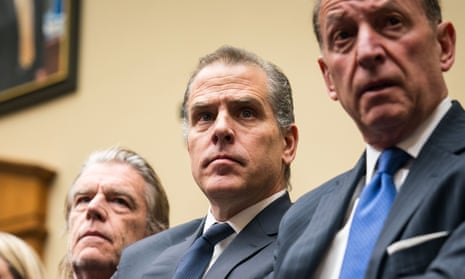
In response to the ongoing efforts by House Republicans seeking to impeach President Joe Biden over unproven corruption allegations, Hunter Biden's attorney, Abbe Lowell, announced on Friday that Hunter Biden is willing to comply with any new subpoena and testify in private. Lowell conveyed this message to James Comer and Jim Jordan, the Republican chairs of the oversight and judiciary committees.
The attorney's letter stated, "If you issue a new proper subpoena, now that there is a duly authorized impeachment inquiry, Mr. Biden will comply for a hearing or deposition." Lowell emphasized that they would accept such a subpoena on Hunter Biden's behalf.
The Republicans are particularly interested in exploring Hunter Biden's business dealings and personal struggles with addiction. Beyond the congressional scrutiny, Hunter Biden is currently facing criminal charges related to a gun purchase and federal tax affairs, carrying potential prison sentences of 25 and 17 years, respectively. In Los Angeles, he recently pleaded not guilty to these charges.
Previously, Hunter Biden had refused to comply with a congressional subpoena for private testimony, insisting on a public session. However, in the latest development, Abbe Lowell expressed Hunter Biden's readiness to testify in private, addressing the concerns raised by House Republicans.
A recent hearing, led by James Comer, considered a resolution to hold Hunter Biden in contempt of Congress, a charge that can lead to fines and imprisonment. The hearing turned chaotic, with unexpected appearances by Hunter Biden and Abbe Lowell, resulting in the resolution being sent to the full House for a vote.
Abbe Lowell, who previously represented Jared Kushner during congressional scrutiny, questioned the legality of prior subpoenas for Hunter Biden. He suggested that transparency could be achieved through public hearings but stated that Hunter Biden was now prepared to testify privately.
In response to Lowell's letter, Comer and Jordan accused Hunter Biden of defying valid subpoenas and staging stunts. They declared the House's intention to move forward with holding Hunter Biden in contempt until he confirms a date for a private deposition, emphasizing that special treatment for the Biden family would not be tolerated.
The situation has become politically charged, with both Democrats and Republicans engaging in a war of words, as the House judiciary committee Democrats criticized the pursuit of "baseless impeachment stunts" while significant issues like a potential government shutdown loom.








